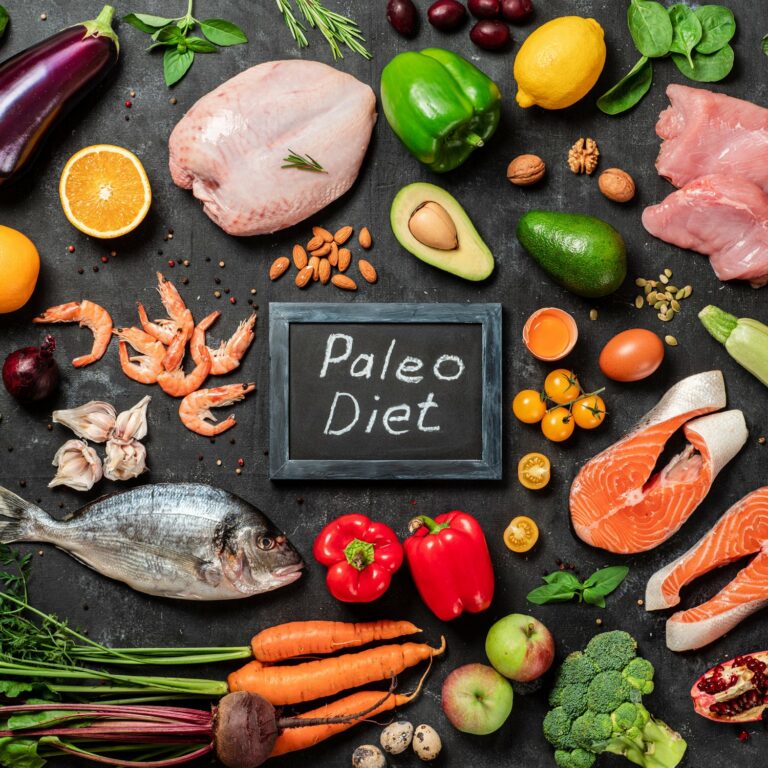Nutrition: Nutrients and Dietitian’s Role
Author: Alvin
Alvin
Category: neutrinos

Nutrition is the study of how food influences the body’s health. Food is necessary for survival; it offers critical nutrients and aids in the body’s function and health maintenance. Food contains macronutrients such as protein, carbohydrate, and fat that provide calories to fuel the body and provide energy and play specialized roles in health maintenance. Additionally, food provides micronutrients (vitamins and minerals) and phytochemicals, which do not provide calories but perform many vital functions in the body.
Macronutrients: Protein, Carbohydrates, and Fat
Protein
Found in cattle, hog, poultry, game and wild meats, fish and seafood, eggs, soybeans, and other legumes found in traditional Central American cuisine. Amino acids are the building blocks of proteins required for bodily tissue growth, development, repair, and maintenance. Protein gives muscle and bone structure, heals damaged tissues, and aids immune cells in their fight against inflammation and infection.
Carbohydrates
A carbohydrate’s primary function is to provide energy and fuel the body, just like gasoline fuels an automobile. Sugars or starches found in corn, chayote, beans, plantains, rice, tortilla, potatoes, and other root vegetables such as yucca, bread, and fruit.
Energy enables the body to do daily actions ranging from walking and speaking to running and pushing large objects. Because fuel requires for growth, it is especially critical for developing youngsters and pregnant women. Even when the body is at rest, it requires calories to accomplish essential processes such as regulating body temperature, beating the heart, and digesting food.
Fat
Dietary fat, which in oils, coconut, nuts, milk, cheese, meat, chicken, and fish, gives cells structure and protects membranes from harm. Oils and fats are also necessary to absorb fat-soluble vitamins, such as vitamin A, which is necessary for healthy eyes and lungs.
Micronutrients: Vitamins and Minerals Explanation
Vitamins and minerals are food components that contribute to general health and require proper cell metabolism and neurological function.
Vitamins aid in generating energy, wound healing, bone growth, immunity, and the health of the eyes and skin.
Minerals contribute to the cardiovascular health and structural integrity of the skeleton.
Consuming a balanced diet that includes fruits, vegetables, dairy products, protein meals, and whole or enriched grains helps ensure that the body receives adequate nutrients. By illustrating a handful of the roles of specific micronutrients, nutrition education can be made more effective:
- Vitamin A aids with the vision of the eyes.
- Calcium and magnesium aid in the relaxation of muscles and blood vessels, hence reducing cramps and hypertension.
- Vitamin C promotes wound healing and enhances the body’s ability to resist infection.
- Iron aids in the blood’s oxygen transfer throughout the body and help avoid anemia.
Explanation of the Nutrients as Building Blocks Concept
Protein requires for infants’ growth in utero, child and teenage development, and the repair of injured skin, blood, and other body components in adults who are not developing. Because certain body components, such as blood and skin, are replaced regularly, even adults continually generate new body parts. Calcium is also a necessary component of bone formation. Iron is a component of blood. Due to the short lifespan of blood cells, the body always needs additional iron and protein to produce new blood.
What Exactly Is Nutrition?
Every living creature, including trees, animals, and humans, requires food to thrive. Food provides us with strength. However, power is also available only when a balanced diet consumes. A balanced diet is critical for maintaining a healthy lifestyle. We need to place a higher premium on nutritional value than on taste.
The Definition of “Healthy Food”
A variety of foods provide the nutrients necessary for optimal health, feeling good, and having energy. Additionally, nutrients include protein, carbohydrates, fat, water, and vitamins and minerals. Nutrition is critical for the health of our bodies. In addition to physical activity and maintaining a healthy body, eating a balanced diet is a wonderful approach to keep your body strong and healthy.
Rice, roti, lentils, green vegetables, milk, and yogurt, among other foods, all play a role in a balanced diet. Everybody should consume a balanced diet daily. A balanced diet contributes to our happiness. Additionally, we should consume fruits daily as part of a balanced diet.
Today, we are losing sight of the necessity of a balanced diet and gravitating toward unhealthy foods, increasing the risk of diabetes and obesity.
People are becoming attracted to delectable cuisine and are paying little attention to the food’s quality. While junk food may be delectable, it is not nutritious and is detrimental to our health.
What happens if we do not consume nutrition-dense foods?
Numerous ailments are associated with fried and packaged foods. We should all limit our junk food intake and make a balanced diet a part of our daily routine.
Items that have been preserve or canned and other similar foods are completely bad for the body. It eventually results in severe disease and death. Children who consume junk food exhibit a lack of concentration.
Additionally, you may experience digestive issues due to junk food’s lack of fiber, which aids in digestion. Blood sugar levels are erratic as a result of junk food consumption, due to its lower carbohydrate and protein content. Additionally, junk food contributes to an increase in cholesterol and triglyceride levels.
Benefits of Nutrition
Our children adore brightly colored foods, so serve them a slice of carrot radish, which will appeal to them due to its variety of colors. Not only youngsters, but all growing individuals, should consume a balanced diet. We should eat three times a day, and each meal should contain nutritional food.
Dine outside on occasion, but we must consume healthful foods daily. We should consume less junk food and consume mainly fresh foods. Consuming a nutritious diet also enables you to save money. It is less expensive than fast food.
The Advantages of Healthy Food
This reduces the expense of everyone who goes to make a nutritious meal even further. When you consume solely nutritious foods, you will save a significant amount of money. We should consume normal sugar and avoid excessive sugar consumption while limiting our sodium intake (salt). Additionally, it should be iodized salt.
Maintains Brain Activity and Energizes
Nutrient-dense foods supply us with vitality and attentiveness. As a result, we continue to be active. As a result, I recommend that you all eat nutritious foods, exercise daily, and maintain a healthy lifestyle, as health is riches.
Prevents Obesity
Additionally, a healthy diet helps us avoid obesity by assisting us in managing unneeded weight growth.
Maintains Calorie Balance
It takes between 1,600 and 2,400 calories per day for female adults and between 2,000 and 3,000 calories per day for male adults. Within each age and gender category, the lower end of the scale represents inactive persons; the upper end represents active individuals.
Avoid Infectious Diseases
Consuming unhealthy foods, such as those high in oil, fat, and spice, can result in various health problems, including chronic heart disease, ulcers, diarrhea, and renal failure. Therefore, to avoid these types of health problems, constantly consume a balanced diet.
Preserves Your Beauty
Consuming nutritious foods ensures that your skin is continually shining. Consuming fast food or junk food may have a detrimental effect on your body’s beauty. Unhealthy oily foods can contribute to acne and hair loss, giving you an unattractive appearance.













